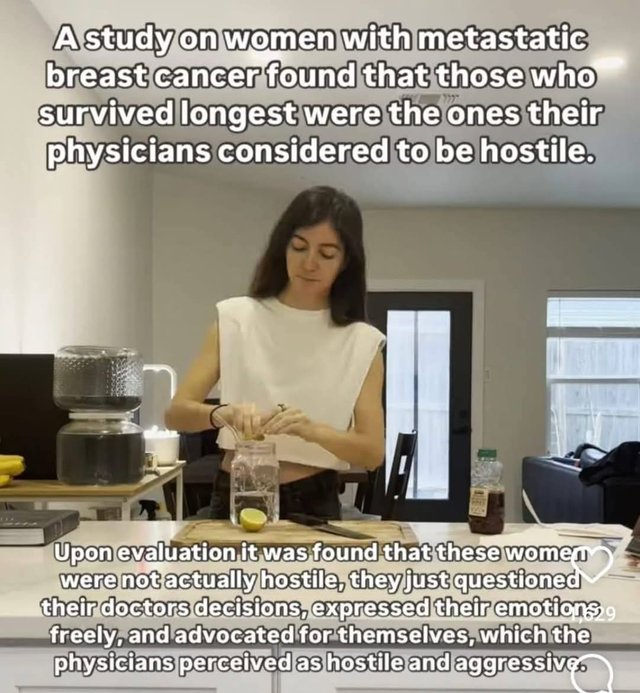This sort of "problem" with causal/statistical claims is prevalent and, to me, very obvious.

Is this supposed to imply that elective behavior led to longer survival, and therefore if women elect to exhibit the listed characteristics, the information provided gives them have reason to think they will survive longer? The reported information doesn't support that conclusion.
And I'm not just being pedantic or cute or whatever. Although it should be enough to point out that the information is neutral as to the conclusion. But for what it's worth, I think there's good reason to have a hypothesis that is contrary to the meme:
Assuming this was in the US (and quite a few other places but it would be exhausting to itemize), I think it's not likely to be the best explanation. I think it's more likely that the women who exhibited these characteristics (1) were more likely to have gotten an earlier diagnosis, (2) have higher income and that correlates with higher survival for all sorts of (other) reason, (3) are comfortable in English, which correlates to higher education, comprehension, collaboration, and compliance (all of which I presume correlate to longer survival), (4) are more in robustly good health (people in poor health are more disengaged), which correlates to longer survival, (5) are younger (this one I am less certain of but I suspect the behaviors are less common among women who came of age before the 1970s) and that correlates with longer survival, etc. (7) I also suspect that the data shows that women who are less well-liked by their doctor, or whom their doctor prefers to avoid, etc., are if anything more likely to get poorer treatment. And I suspect the women who exhibit the characteristics are actually more savvy about managing that reaction (both due to experience and general intelligence), and it's the "making the doctor like me more than average even though my behavior is hostile" that gets the work done.
This sort of "problem" with causal/statistical claims is prevalent and, to me, very obvious. I don't understand the point of these kinds of memes. If there really is good data to back the claim, it would be easy to say so in the meme.